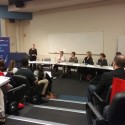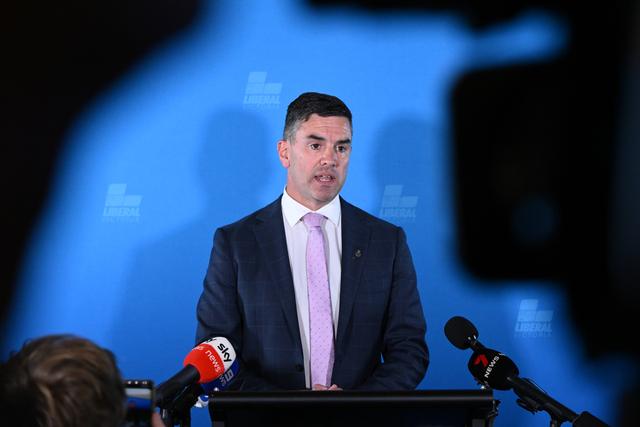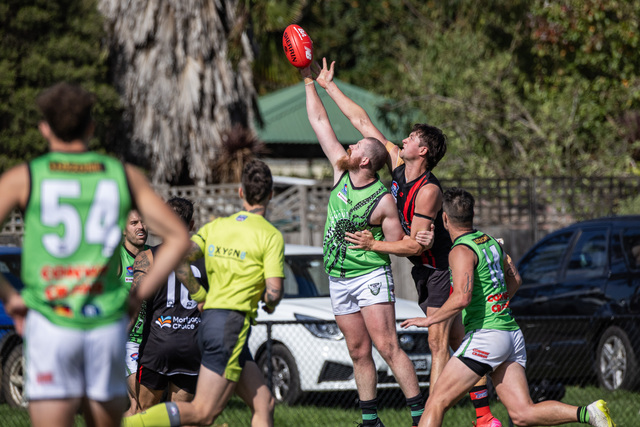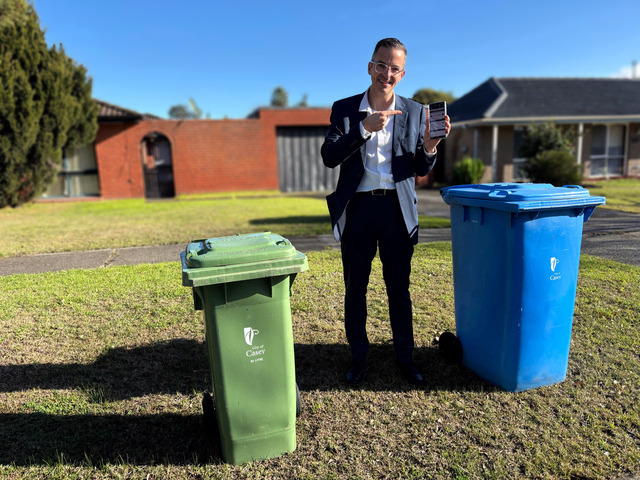By CASEY NEILL
CRANBOURNE East’s liquor barn battle was a talking point at the Dandenong Family Violence Community Forum.
Minister for Women and the Prevention of Family Violence Fiona Richardson responded to a question from the audience about the links between liquor advertising and outlets and family violence at the 19 May event at Chisholm.
The questioner referenced news in April that the Victorian Commission for Gambling and Liquor Regulation over-ruled a chorus of objections on public-harm grounds against a proposed Dan Murphy’s outlet in Linsdell Boulevard.
The Casey area is the highest ranked for family violence involving alcohol in the state, and experts submitted evidence of strong links between packaged alcohol supply and family violence.
Ms Richardson said alcohol was represented in half of all family violence incidents.
“It’s not a cause, but a contributing factor,” she said.
She said the Family Violence Royal Commission recommendations included ensuring a Liquor Control Reform Act review considered family violence and alcohol-related harms.
Cultural and attitudinal changes were needed, she said, and alcohol and drug services played an important role in responding to family violence.
During a speech to the 60-strong audience, Ms Richardson said that changing societal attitudes about the value of women would reduce violence against them.
“Each and every one of us has played a part in getting to where we are today,” she said, giving the example that she’d tolerated many blonde jokes over the years.
“We are all going to have to engage on this question and have some tough and challenging conversations.”
She said the perpetrators generally didn’t get into fights at work or on the bus.
“They wait ’til they get home,” she said.
“Something in their minds says behaving in this way is somehow acceptable or excusable.”
Dandenong MP Gabrielle Williams organised the event.
“My extended family has been touched by family violence,” she said.
“We all have these stories.
“I think that’s what makes this issue such a powerful one.”
She played a video pushing the message that treating boys and girls differently perpetuated inequality that created an environment for family violence to occur.
Joining Ms Williams and Ms Richardson were four panellists.
Department of Health and Human Services south-east regional integration co-ordinator Linda Watson said that on average police responded to 19 family violence incidents a day in Melbourne’s south-east – or one every 75 minutes.
She said an increase in reports to police showed increasing confidence in the system’s ability to help – but this had increased demand on support agencies, whose funding couldn’t keep up.
“Amazing reforms have taken place. As a state we’ve come a long way,” she said.
“Maintaining the momentum of change is a challenge.”
Dr Ilsa Evans is a teacher and co-ordinator at Chisholm.
“Family violence has always been part of our diploma studies,” she said.
“We want to see family violence in every health and community-related course nation-wide.”
Women’s Health in the South East (WHISE) CEO Sue Glasgow said she was heartened to see new television commercials highlighting the issue.
“It has to be a whole of population approach for it to make a real difference,” she said.
Maya Avdibegovic from inTouch Multicultural Centre Against Family Violence was the previous day named on the State Government’s Family Violence Steering Committee, marking the next phase of reform following the Royal Commission into Family Violence.
She said inTouch last year supported clients from 92 different cultures.
“When a client has finally found the courage to disclose their most personal issues, speaking to someone who has the same language and an understanding of cultural context makes a huge difference,” she said.
She said In Touch had established men’s behavioural change programs in different languages.
“If they decide they want to change but don’t speak English they have nowhere to go,” she said.
Ms Avdibegovic said there was an emergency housing shortfall.
“It is a big issue and it is a big problem and it’s preventing a lot of women from leaving, knowing there’s hardly anywhere for them to go,” she said.
“I think that we are on the right way to address that.”
She also indicated that corporate partnerships provided an opportunity.







